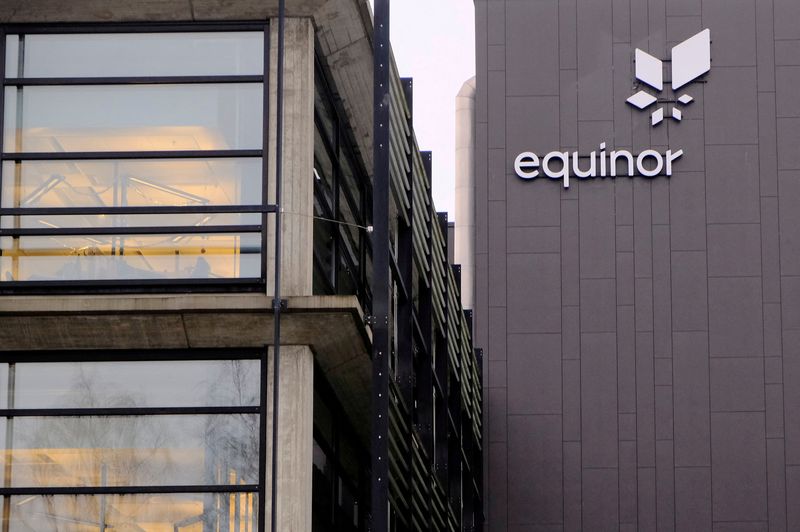
© Reuters. FILE PHOTO: Equinor’s logo is seen in Stavanger, Norway December 5, 2019. REUTERS/Ints Kalnins/File Photo
By Nora Buli
OSLO (Reuters) – A European Commission plan for a gas price cap risks reducing liquidity in Europe’s gas market, posing a threat to how it functions, head of trading at Norwegian oil company Equinor told Reuters, but its own gas deliveries will not be affected.
The aim of the cap is to shield European consumers from the surge in energy prices they have faced since Russia invaded Ukraine, and which have helped to fuel inflation.
For Equinor, the biggest concern is what happens to the liquidity in the gas market, Helge Haugane, Equinor’s head of gas and power trading, said in an interview.
Haugane has previously raised the alarm on market liquidity. In September, he warned that some 1.5 trillion euros ($1.58 trillion) tied up in the margin calls that traders pay to protect against defaults could squeeze gas and power market liquidity and see smaller market participants struggling.
But he said this was no longer a “big issue”, with margin calls now only “a fraction” of what they were at the end of August.
“I think the price cap is the one that we need to pay attention to,” Haugane said.
The European Commission is proposing to introduce a cap to the front-month contract on Europe’s main gas trading hub the Dutch Title Transfer Facility (TTF), which sets Europe’s benchmark and is the market’s most liquid contract. But member states disagree over the details.
“From the Equinor perspective, we should still be able to get our gas to the markets and we should get the gas to the markets where it’s needed the most,” Haugane said of the Commission’s proposal.
Equinor has become Europe’s largest supplier of after a sharp drop in pipeline volumes from Russia’s Gazprom (MCX:) in the wake of Ukraine crisis.
Equinor sells most of its gas in the physical day-ahead or even same-day market, which are outside the scope of the current market intervention plans.
MORE BILATERAL TRADING
But in line with other critics, Haugane said a cap on financial contracts, such as on the TTF front-month, which are used to manage price risks, could drive participants, including Equinor, away from exchanges and into the bilateral over-the-counter (OTC) market.
“We might also trade a little bit less in the financial market than we otherwise would because the liquidity will be lower. That means the bid-ask spread will typically be higher and we will have a less well-functioning market,” he said.
Equinor, other big oil companies and trading houses will be able to find alternatives for managing their risk, but smaller industrial players without their own trading organisation would not have the same bilateral or OTC opportunities, he said.
Meanwhile, Equinor has doubled volumes for new physical bilateral gas contracts entered into year-on-year, totalling more than 50 billion cubic metres (bcm), Haugane said.
These contracts are typically indexed to various gas price indices and cover delivery terms of up to 10 years, he added.
Equinor is also open to discuss longer term fixed price contracts, but so far there has been limited interest from buyers, he added.
One reason could be that such contracts also carried a price management risk for buyers, were gas prices in the spot market to fall.
($1 = 0.9489 euros)


Be the first to comment